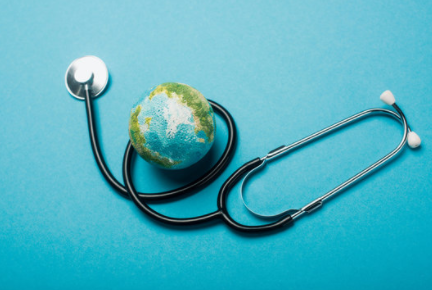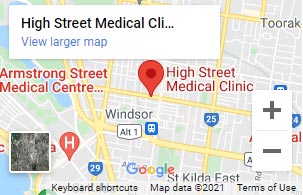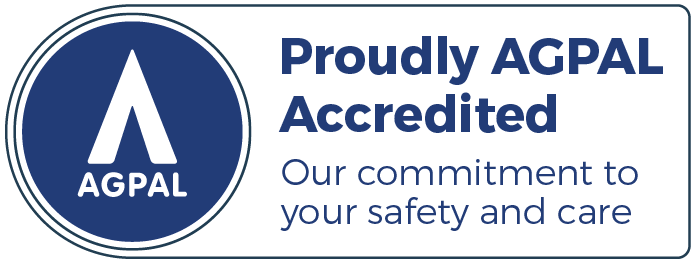Comprehensive Travel Medicine Services
Travel medicine is a specialised field dealing with illness, disease, and injury often acquired during travel abroad and not usually common to Australia. At High Street Medical Clinic, we provide comprehensive travel medicine services to ensure your health and safety during international travel. Travel medicine consultations include general health and precautionary advice, preventative medicines, and pre-travel immunisations, some of which are destination dependent. Consideration must also be given to personal medical history. Located in Prahran, Melbourne, the experienced team of doctors is dedicated to protecting your well-being abroad.
- Travel Advice
- Travel Vaccinations including Yellow Fever
- Country Specific Information
- Treatment for unwell returned travellers
Why Visit a Travel Vaccine Clinic?
When planning a trip overseas, it is crucial to consult a travel vaccine clinic well in advance to ensure your body is at optimal immunity against potential diseases when travelling. Not, only that, but some countries require proof of immunisation against infectious diseases before allowing entry. The team of knowledgeable doctors will assess your travel plans, medical history, and destination-specific risks to provide you with personalised recommendations and vaccinations.
Protective Travel Vaccinations
We offer a comprehensive range of travel vaccinations to protect your health while abroad. Our clinic provides vaccinations for various diseases, including but not limited to:
- Cholera
- Diphtheria
- Hepatitis A
- Hepatitis B
- Japanese Encephalitis
- Meningococcal Meningitis
- Polio
- Rabies
- Tetanus
- Tuberculosis
- Typhoid
- Yellow Fever
The experienced doctors will guide you through the vaccination process in preparation for your travel abroad, ensuring that you receive the necessary immunisations to protect against potential health risks in your travel destination.
Note: The yellow fever vaccine must be administered by an officially approved yellow fever vaccination centre. If you are in search of an authorised provider of the yellow fever vaccine in Melbourne, we are your ideal choice.
Expert Travel Health Advice
In addition to vaccinations for travel, travel medicine services encompass expert medical advice tailored to your specific travel plans. We provide up-to-date information on country-specific health risks, travel advisories, and preventive measures. Your doctor will address any concerns you may have and offer guidance on maintaining your health while travelling.

Returned Traveller Treatment
Our commitment to your well-being extends beyond pre-travel consultations and vaccinations. We understand that some travellers may experience health issues while abroad. Our clinic also offers treatment for unwell returned travellers, ensuring that you receive the necessary medical attention and care upon your return.
FAQs
Travel medicine is a specialised field that focuses on preventing and managing health issues related to international travel. It encompasses a range of services, including pre-travel consultations, travel vaccinations, and advice tailored to specific travel destinations. Travel medicine is important because it helps individuals understand and mitigate the health risks associated with travel, ensuring a safer and healthier journey.
It is recommended to consult a travel medicine clinic at least 6–8 weeks before your departure overseas. This will allow sufficient time to assess your specific travel needs, complete any required vaccinations or medications, and ensure optimal protection against travel-related diseases. However, even if you have a need to travel at short notice, you should still consult a travel doctor as immunisations against certain diseases may still be able to be administered to help protect against illness.
If you are planning to travel overseas, available vaccines that your doctor may recommend for preventing disease include, but are not limited to:
The recommended vaccinations for international travel from Australia can vary depending on factors, such as your travel destination, duration of travel, planned activities, and individual health status. Common travel vaccinations against diseases include hepatitis A, hepatitis B, typhoid, cholera, tetanus, diphtheria, pertussis (whooping cough), measles, mumps, rubella, influenza, and others. It is, however, essential, to consult with a GP or travel medicine clinic to ensure you receive personalised vaccination advice based on your specific travel plans and health needs.
Private health insurance coverage for travel vaccinations may vary depending upon your insurance provider and policy. Some health insurance plans may cover travel vaccinations partially or in full, whilst others may not cover them at all. It is recommended to contact your private health insurance provider directly to enquire about your specific coverage for travel vaccinations.
Like any medical intervention, travel vaccinations can have potential side effects. The most common side effects are usually mild and include pain, redness, or swelling at the injection site, low-grade fever, or mild flu-like symptoms. Serious side effects are rare. It is important to discuss any concerns or previous adverse reactions with your doctor before getting vaccinated.
Yes, it is often possible to receive multiple vaccinations during one visit to a travel medicine clinic. Combining multiple vaccinations in a single visit can save time and ensure that you are adequately protected before your trip. Your doctor will assess your specific needs and advise on the appropriate vaccination schedule.
Certain countries may require proof of specific vaccinations as a condition of entry. For example, some countries may require a yellow fever vaccination certificate if you are travelling from or have transited through a yellow fever-endemic area. It is essential to check the entry requirements of your destination country well in advance and consult your doctor or travel medicine clinic for the necessary vaccinations.
The duration of protection provided by travel vaccinations varies depending on the specific vaccine and disease. Some vaccinations offer long-term protection, while others may require booster doses to maintain immunity. For example, vaccines like hepatitis A and hepatitis B typically provide long-term protection, while vaccines like typhoid may require booster doses every few years. It is important to discuss the duration of protection and any necessary booster doses with your doctor.
If you experience any health issues during or after your trip, it is important to seek medical attention promptly. Visit a doctor or a travel medicine clinic to receive appropriate diagnosis, treatment, and care. Be sure to inform the healthcare provider about your travel history and any specific symptoms or health concerns you may have.
Book Your Travel Medicine Consultation Today
When travelling overseas, it’s best to consult your doctor at least 6–8 weeks before departing, so that your body can develop immunity against the diseases, to provide you with peak protection during your travel. So, get protected before you jet set out of Melbourne, and book a travel medicine consultation with experienced doctors to receive personalised advice, essential vaccinations, and comprehensive care.







